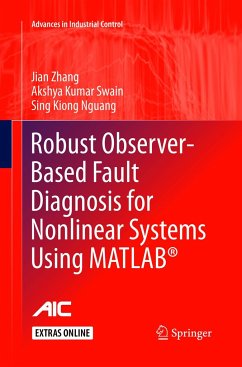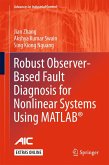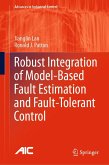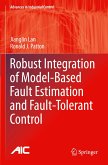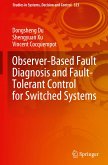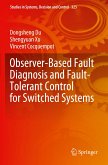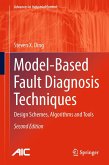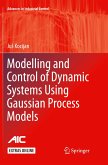This book introduces several observer-based methods, including:
-the sliding-mode observer
-the adaptive observer
- the unknown-input observer and
- the descriptor observer method
for the problem of fault detection, isolation and estimation, allowing readers to compare and contrast the different approaches. The authors present basic material on Lyapunov stability theory, H¥ control theory, sliding-mode control theory and linear matrix inequality problems in a self-contained and step-by-step manner. Detailed and rigorous mathematical proofs are provided for all the results developed in the text so that readers can quickly gain a good understanding of the material. MATLAB® and Simulink® codes for all the examples, which can be downloaded from http://extras.springer.com, enable students to follow the methods and illustrative examples easily. The systems used in the examples make the book highly relevant to real-world problems in industrial control engineering and include a seventh-order aircraft model, a single-link flexible joint robot arm and a satellite controller. To help readers quickly find the information they need and to improve readability, the individual chapters are written so as to be semi-independent of each other.
Robust Oberserver-Based Fault Diagnosis for Nonlinear Systems Using MATLAB® is of interest to process, aerospace, robotics and control engineers, engineering students and researchers with a control engineering background.
-the sliding-mode observer
-the adaptive observer
- the unknown-input observer and
- the descriptor observer method
for the problem of fault detection, isolation and estimation, allowing readers to compare and contrast the different approaches. The authors present basic material on Lyapunov stability theory, H¥ control theory, sliding-mode control theory and linear matrix inequality problems in a self-contained and step-by-step manner. Detailed and rigorous mathematical proofs are provided for all the results developed in the text so that readers can quickly gain a good understanding of the material. MATLAB® and Simulink® codes for all the examples, which can be downloaded from http://extras.springer.com, enable students to follow the methods and illustrative examples easily. The systems used in the examples make the book highly relevant to real-world problems in industrial control engineering and include a seventh-order aircraft model, a single-link flexible joint robot arm and a satellite controller. To help readers quickly find the information they need and to improve readability, the individual chapters are written so as to be semi-independent of each other.
Robust Oberserver-Based Fault Diagnosis for Nonlinear Systems Using MATLAB® is of interest to process, aerospace, robotics and control engineers, engineering students and researchers with a control engineering background.

